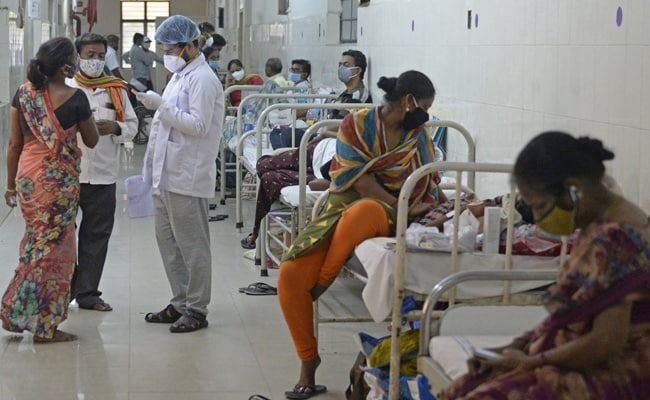

Gujarat has reported 2,281 cases on Black Fungus, the most among the states. (Representational image)
New Delhi:
Nearly 9,000 people have been infected with mucormycosis or Black Fungus across the country, Union Minister Sadananda Gowda said today. In view of the rapid surge, the government has sent over 23,000 additional vials of a key drug used for the treatment of the fungal infection to the affected states, he added.
“After a detailed review of rising number of cases of #Mucormycosis in various states, a total of 23,680 additional vials of #Amphotericin- B have been allocated to all States/UTs today. The Allocation has been made based on total number of patients which is approximately 8,848 across country,” Mr Gowda, the Minister for Chemicals and Fertilisers, tweeted along with the break-up of the number of vials allocated to the affected states.
Gujarat, which has reported 2,281 cases – the worst-hit state – has been allocated 5,800 vials, while Maharashtra, the second worst affected, has been given 5,090 vials. Andhra Pradesh will receive 2,300 vials to treat the 910 patients affected and neighbouring Telangana (350 cases) has been allocated 890 vials.
National capital Delhi, which has reported 197 cases till now, will receive 670 vials, according to his break-up.
After a detailed review of rising no. of cases of #Mucormycosis in various states, a total of 23680 additional vials of #Amphotericin– B have been allocated to all States/UTs today.
The Allocation has been made based on total no. of patients which is approx. 8848 across country. pic.twitter.com/JPsdEHuz0W
– Sadananda Gowda (@DVSadanandGowda) May 22, 2021
Hundreds of cases of Black Fungus, which affects the eyes, nose, jaws, and could even spread to the brain, have been reported from across the country in the aftermath of COVID-19 infections, following which the centre asked states to notify it under the Epidemic Diseases Act.
At least 11 pharmaceutical companies in India have been allowed to make drugs to treat Black Fungus, the government had said amid reports of a shortage of medicines.
Some doctors say there has been panic use of steroids to combat Covid, which has fueled the spread of Black Fungus. Coronavirus patients with diabetes and a weakened immune system are particularly vulnerable to Black Fungus.
The disease is caused by organisms called mucormycetes, which enter the body through breathing or skin injuries. These are naturally present in soil and decaying organic matter, but once inside humans, they can infect air pockets behind the forehead, nose, cheekbones and between the eyes and teeth.






